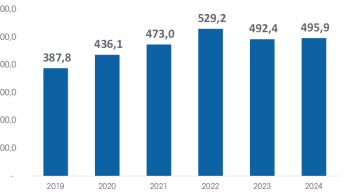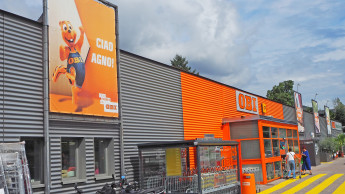Two years ago, Mr. DIY, a home improvement retail chain that has become a household name in Asia, caused a stir by venturing into what was then unknown territory for the super brand: Europe, by way of Turkey. In 2021, the Malaysian powerhouse opened its first branch in Istanbul. This was followed by a foray into Spain in early 2022, and the establishment of a subsidiary in Greece a few months later. Officials then disclosed that the company would look at east European countries as potential expansion sites as it continued to increase its footprint in Turkey and Spain. Last September, the company announced that it was exploring the Polish market.
Despite the build-up, Mr. DIY now appears to have reined in its European ambitions in favour of more familiar waters; this year, instead of launching in another European market as it had hinted, Mr. DIY ventured into Vietnam -- one of the three Southeast Asian markets that the retailer had ignored for years. DIY International’s Asia correspondent Jennee Grace U Rubrico reached out to market research company Euromonitor International to discuss the shift in Mr. DIY’s European game plan as well as its prospects in the region. In this interview, Haikal Sufiyan, Senior Research Analyst and Nick Stene, Home and Garden Industry Manager at Euromonitor gave their insights on where they see the company’s mission of creating a globally recognised brand is going in light of the “unpredictable European landscape”, whether Mr. DIY has a place in Europe, and what adjustments it needs to make to succeed in the market.
Excerpts follow.
Mr. DIY is looking to penetrate as much of Europe as it can, moving rapidly when it went into Turkey and Spain. It then set up a subsidiary in Greece, and is now looking at the potential of Poland. Does Euromonitor see a place for Mr. DIY in Europe?
Euromonitor: Mr. DIY positions around the messaging “Always low prices”, with a wide range of products beyond home improvement, placing it up most closely against the discounter and variety channels. Particularly when thinking about Spain and a European strategy, that means it is competing with the likes of Aldi and Lidl, which have already been making their own inroads around the discounting strategy. If we look at channel movement over the pandemic, focusing on Europe as a whole, we can [see] discounter and lower priced variety stores have fared worse versus specialist home improvement and gardening stores. That is under greater pressure in the midst of a…

 Menü
Menü















 Newsletter
Newsletter